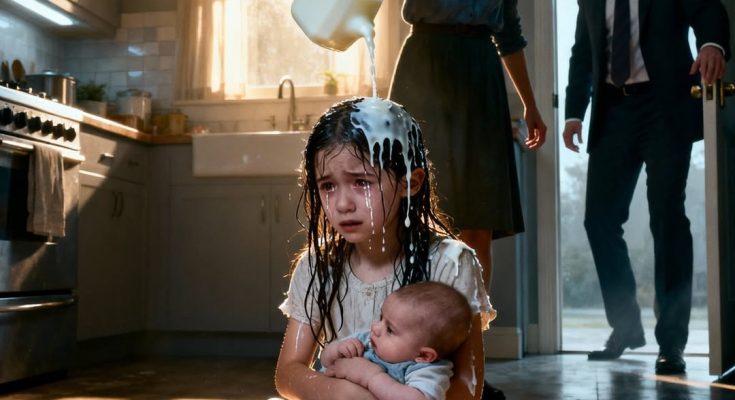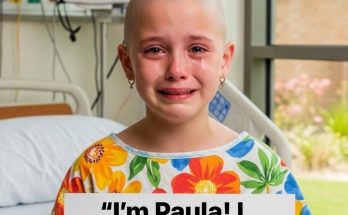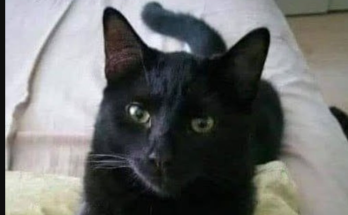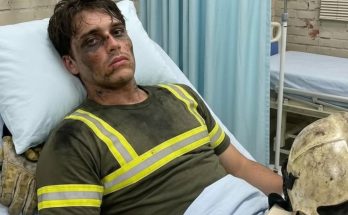Richard didn’t argue. He didn’t yell. He didn’t ask for explanations that didn’t matter. When Vanessa tried to protest, he simply repeated his words. His tone left no room for negotiation. Within three hours, she was gone, escorted out by a neighbor who had overheard enough to stand as a witness if needed.
For the next days, the house felt heavy with silence. Not peaceful silence—fragile silence. Emily followed Richard everywhere, almost as if she feared he might vanish the second she looked away. At night, she woke shaking, clutching Alex tightly to her chest. Richard began sleeping in the children’s room, resting on a mattress beside their beds, holding Emily’s hand whenever she jolted awake.
He didn’t ask her what had happened. He didn’t push. He simply stayed.
Slowly, little pieces of the truth surfaced—not in full stories, but small clues. The way Emily flinched when someone reached for a glass. How she apologized before speaking. How she rocked Alex gently whenever she was scared, whispering, “It’s okay, I’m here. I’ll take care of you.”
Richard had spent years providing every material comfort—yet his daughter had been living in fear right under his own roof.
Guilt settled heavily in his chest.
So he made changes—not temporary efforts, but real ones.
He reduced his work hours. He trained his managers to take lead roles. He brought his laptop to the living room so he could be near the children while working. And every evening, he cooked dinner with Emily beside him. Her small hands cracked eggs. She mixed batter. Sometimes she spilled flour everywhere. But instead of frustration, there was laughter—soft at first, then brighter.
The house began to feel like a home again.
But healing was not linear.
One afternoon, Richard entered the living room and saw Emily staring at the front door, her breathing quick and shallow. There was no threat—just a sudden noise outside. Yet her reaction spoke volumes.
Richard knelt beside her, placed a gentle hand on her shoulder, and said, “I’m here. You’re safe. No one will hurt you again. I promise.”
Emily looked up at him slowly—searching his face for truth.
For the first time, she seemed to believe him.
And then, almost in a whisper, she asked:
“Daddy… do you think people who hurt others can change?”
Richard didn’t answer right away.
He didn’t know.
The seasons shifted, and with them, the atmosphere in the Whitman home. The sharp edges of fear softened into quiet comfort. Emily began to smile more, sometimes even laugh freely. Alex, now starting to toddle, filled the house with happy babbling and the sound of plastic blocks clattering across the floor.
But the wound of betrayal did not disappear—it transformed.
One evening, Richard found Emily sitting by the window with Alex asleep in her arms. The fading sunlight cast a gentle glow over her face, making her look older than her seven years. She hummed softly, the melody steady and protective.
Richard sat beside her. For a moment, neither spoke.
“Emily,” he said softly, “I want to ask you something.”
She looked up, her eyes calm.
“Do you… hate Vanessa?”
Emily lowered her gaze to her brother’s sleeping face. She took a long breath.
“No,” she said at last. “I don’t hate her. I just don’t want her to hurt anyone else. Not Alex. Not me. Not another kid.”
Her answer was quiet, but it carried weight beyond her childhood.
Richard felt something inside him shift—something like both pride and sorrow.
He wrapped his arm around her shoulders, pulling her close.
“You are strong,” he whispered. “Stronger than I ever knew. I’m sorry I didn’t see sooner. I should have protected you.”
Emily leaned into him.
“You’re protecting us now,” she said simply.
Over the following months, Richard took real steps: therapy sessions, family counseling, parenting support groups. He learned to listen—not just hear. To be present—not just provide. To value emotional warmth as much as financial security.
And Emily flourished.
She returned to school with confidence. Made new friends. Learned to play the piano. She no longer looked over her shoulder at sudden sounds. Her laughter filled the house again, bright and effortless.
Richard often watched her play with Alex in the backyard—running barefoot in the grass, wind catching her hair—and realized something:
The moment he shouted “STOP!” had not only ended harm.
It had begun healing.
There are children around us who stay quiet when they are hurting.
If you see something wrong — don’t turn away. Speak. Act. Protect.
Love grows when we choose to stop the hurt.
Please share this story if you believe every child deserves safety.




